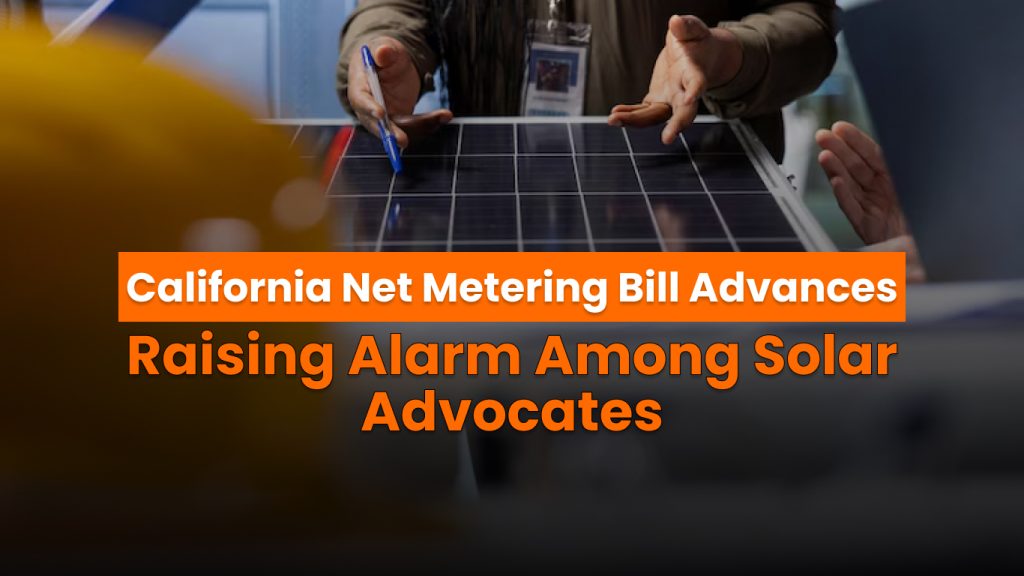A controversial bill that could disrupt long-standing net metering agreements for solar users in California is gaining momentum in the state legislature. Assembly Bill 942, introduced by Assemblymember Lisa Calderon (D), recently cleared the California State Assembly Appropriations Committee and is now scheduled for debate on the Assembly floor, according to Solar Power World.
The bill has sparked significant concern among clean energy advocates and leaders in the solar industry. In its current version, AB 942 would terminate existing net metering agreements when a property with a solar system is sold or transferred. Instead of continuing under the original agreement, the new property owner would be switched to NEM 3.0, California’s current net billing structure. This system offers significantly reduced compensation for excess solar energy fed back into the grid.
Currently, California law allows net metering contracts to transfer with the sale of a property. These agreements, which typically last 20 years, are attached to the solar system itself rather than the owner, ensuring continuity and financial predictability for both sellers and buyers. AB 942 would disrupt this process, prompting widespread criticism from solar supporters.
“The 20-year net metering terms, which every solar user signs, are attached to the solar system — not the property owner. Undermining these agreements when a home is sold or transferred strips away the value of solar investments for middle- and working-class Californians, while setting a dangerous precedent that California’s clean energy commitments cannot be trusted,” said Brad Heavner, executive director of the California Solar & Storage Association (CALSSA), in a press statement.
Earlier versions of AB 942 included an even more aggressive proposal to cut net metering contracts from 20 years to just 10. That language has since been removed, but the provision targeting property transfers remains a major sticking point.
California’s Solar Policy Shift: Concerns Grow Over NEM 3.0 and AB 942
The bill’s progression comes amid broader debates about how California should structure solar compensation going forward. The implementation of NEM 3.0 in 2023 already reduced the financial returns for new solar adopters by decreasing payments for surplus electricity. Critics argue that forcing legacy systems onto NEM 3.0 through AB 942 could discourage new installations and create distrust among consumers who made long-term financial decisions based on previously guaranteed policies.
More than 100 organizations have joined together to oppose the bill. CALSSA and its allies emphasize that solar is not only an environmentally responsible choice but also a practical financial solution for families looking to manage rising utility costs.
“The utility story that solar customers are all wealthy and save too much money is false. Solar is predominantly adopted by working class customers seeking to stabilize utility costs. Customers sign long term leases to achieve savings over time, and should not be thrown under the bus after having trusted what the state has until now called a ‘guarantee’ of consistent policy,” Heavner added.
Opponents of AB 942 argue that altering existing net metering agreements could damage California’s reputation as a leader in clean energy. They believe it sets a troubling precedent that state-backed climate policies can be retroactively changed, undermining consumer confidence.
The California State Assembly is expected to revisit the bill on Tuesday. As the vote approaches, stakeholders across the solar and energy sectors are watching closely. The decision could influence not just California’s energy future, but potentially shape national policy discussions around the stability and fairness of solar investment agreements.

